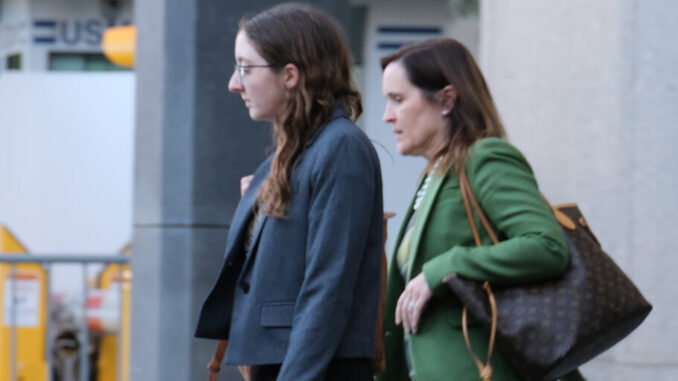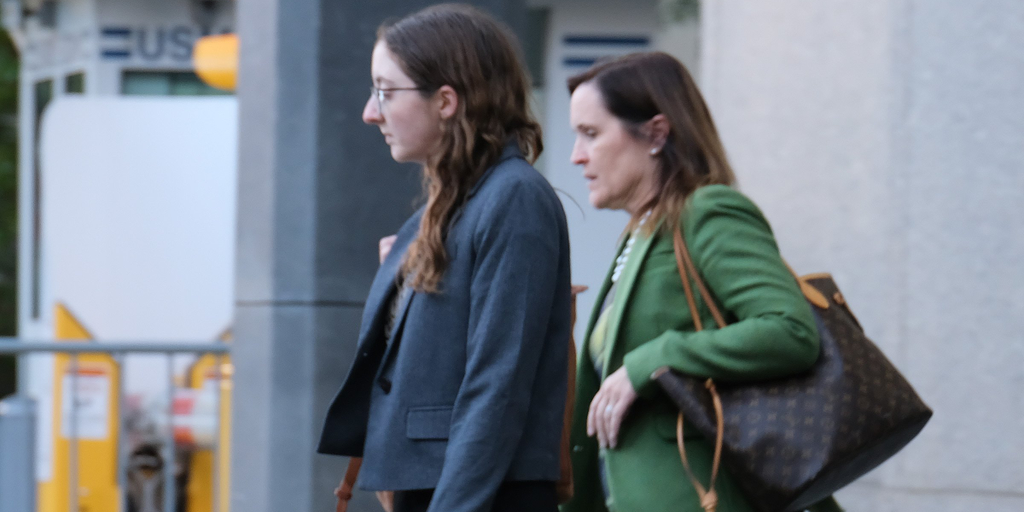
[ad_1]

Now that Sam Bankman-Fried is a convicted criminal likely destined for decades behind bars in a brutal federal prison, what fate will befall his former colleagues and co-defendants?
Nishad Singh, FTX’s director of engineering, Gary Wang, the exchange’s chief technical officer, and Caroline Ellison, former CEO of FTX sister trading firm Alameda Research, all pleaded guilty last December to multiple counts of fraud and conspiracy and agreed to testify against their former boss. Over the last month, their testimony proved crucial in the government’s case against Bankman-Fried, ultimately leading to the FTX founder’s conviction.
But that doesn’t necessarily mean the former crypto execs are off the hook. Ellison, Singh, and Wang still face maximum prison sentences of 110, 75, and 50 years, respectively.
In exchange for their testimony, prosecutors have agreed to send letters—known as 5K motions—to the trial’s sentencing judge on their behalf. These letters will describe in detail both the co-defendants’ criminal conduct, as well as the degree to which they aided the prosecution’s case. The notes won’t recommend specific sentence lengths, though; that’s up to U.S. District Judge Lewis Kaplan, who will also determine Bankman-Fried’s sentence at a hearing set for March 28, 2024.
While the trio is no doubt hoping their swift denunciation of Bankman-Fried will save them from the inside of a prison—Singh and Wang both testified that they hope to receive no jail time—reality might not be so kind to them. A major factor in prison sentences in federal financial fraud cases is the amount of money misused or stolen. Sentence recommendations climb higher the more money is involved in a federal financial crime, maxing out at $550 million. The FTX and Alameda scheme was a $10 billion fraud, according to prosecutors.
“It’s horrible for them,” Christopher Zoukis, a legal consultant who advises clients on navigating the federal prison system, told Decrypt. “Right off the bat without any departures, they’re all likely looking at 210 to 262 months. And that doesn’t account for the other aggravating factors—but it also doesn’t account for mitigating factors.”
Ultimately, Zoukis says, Judge Kaplan will have full say over how much weight to give such sentencing recommendations. Given the amount of public interest in the trial, Kaplan may choose to make an example of Ellison, Singh, and Wang—or, he may wish to reward their assistance in taking down Bankman-Fried, who prosecutors described as one of the biggest financial fraudsters in American history. Either way, Zoukis believes sentencing in this case may not follow familiar patterns.
“This is such an unusual case that has so much media exposure,” he said. “The closest thing I can think of to it is a cartel case.”
If Ellison, Singh, or Wang were to receive prison sentences, but ones lower than 12.5 years, they would likely be sent to minimum-security federal prisons—dorm-style complexes that tend to be non-violent, and are generally considered the best that the federal prison system has to offer. Zoukis believes that if any of the three were to receive any prison time, this would be the most likely outcome.
If, somehow, the former crypto executives get off without any prison time, they will still likely be obligated to return stolen funds and potentially pay restitution to victims. In the case of Bernie Madoff, for example, recipients of ill-gotten profits from the convicted Ponzi scheme operator continue to pay back funds to victims to this day.
And if they avoid prison, Ellison, Singh, and Wang would of course be free to go back to their normal lives and jobs—though they might have a hard time finding work in crypto these days.
Stay on top of crypto news, get daily updates in your inbox.
[ad_2]
Source link




